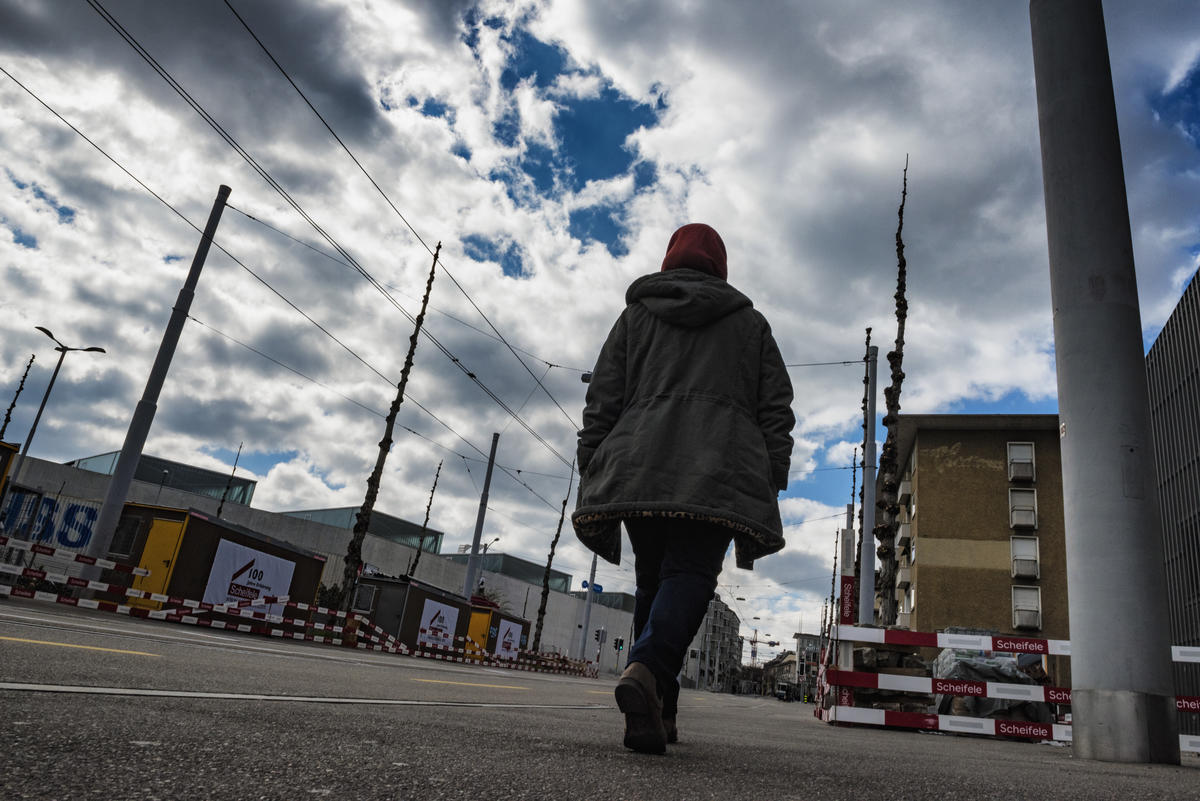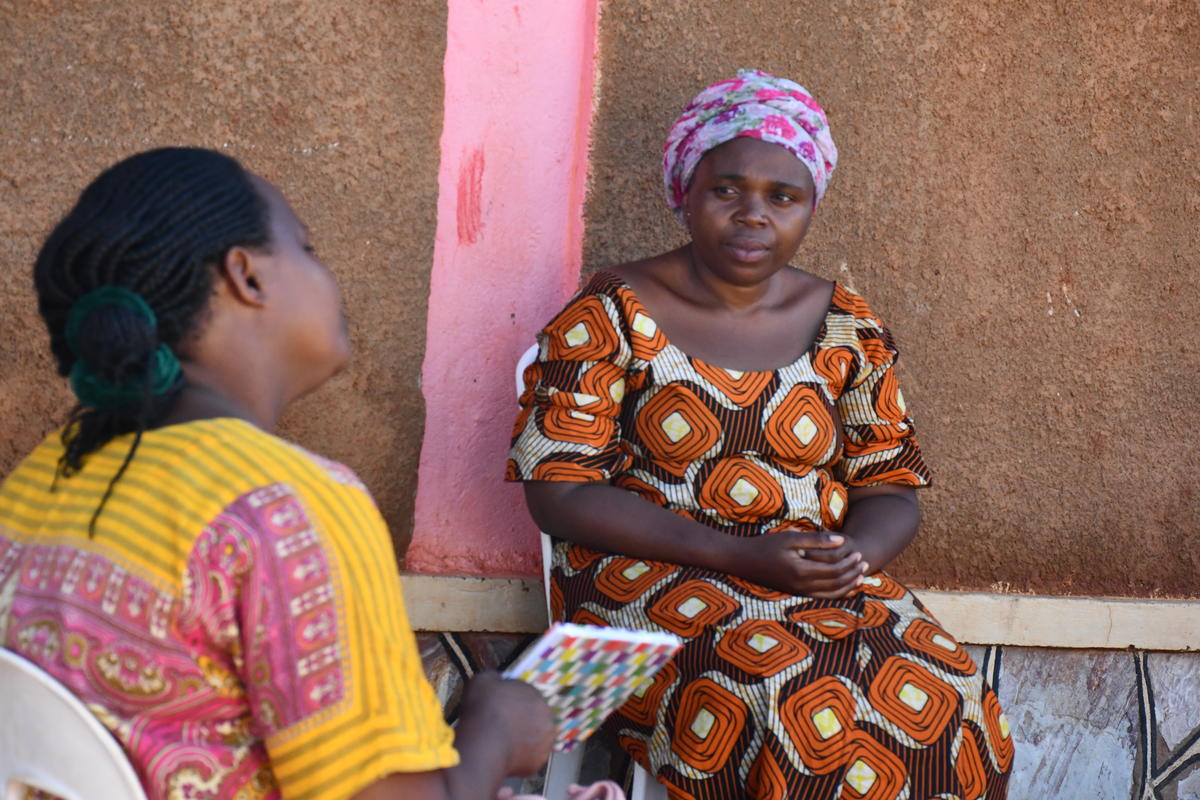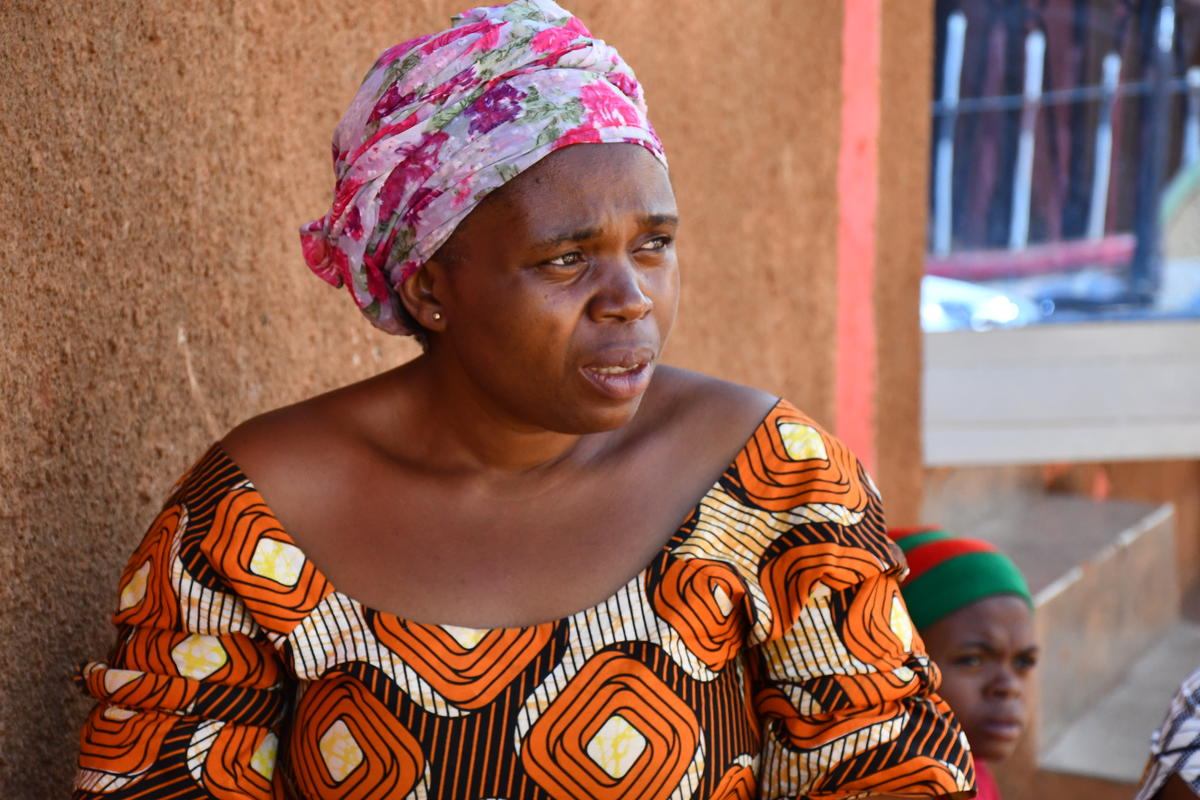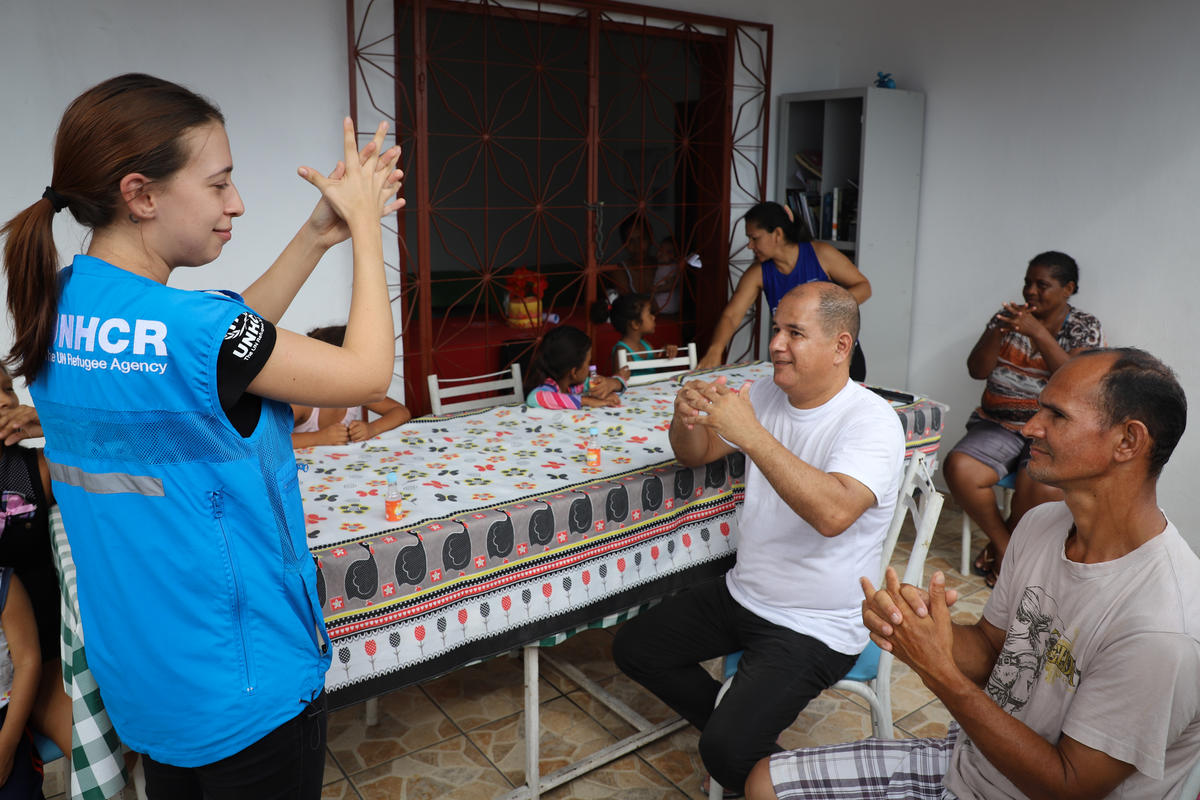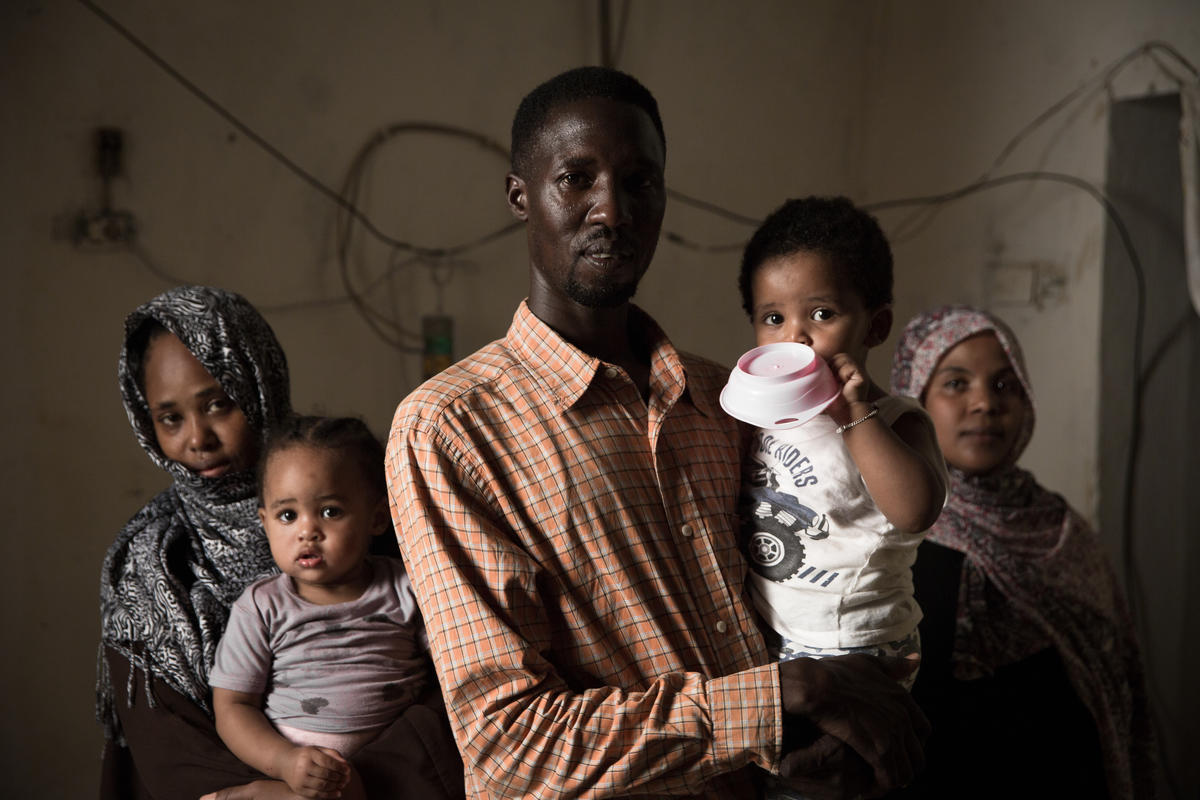Jordan study finds tough living conditions among Syrian urban and other non-camp refugees
Jordan study finds tough living conditions among Syrian urban and other non-camp refugees
A joint UNHCR and International Relief and Development survey has found increasingly difficult conditions among the hundreds of thousands of Syrian refugees in Jordan living outside camps. Fifty per cent of refugee dwellings are inadequate and hundreds of thousands struggle to pay their rent, according to the findings.
The survey shows the day-to-day survival struggle of some 450,000 registered Syrian refugees as they face rising rents, inadequate housing and educational challenges for their children.
The study was based on 92,000 interviews with families conducted during home visits between June 2012 and October 2013. It shows the difficulties that refugees face outside camps, despite the support that Jordan offers to them, including free access to the public health care and education systems.
Almost four-in-every-five Syrian refugees in Jordan live outside formal camps. As their resources dry, many are turning to "negative coping mechanisms" to make ends meet, sometimes placing themselves at risk of exploitation.
More than 90 per cent of the population surveyed live in rented accommodation. Rents for Syrians rose in 2012 and 2013 by as much as 25 per cent in some locations. Rent was 135 Jordanian Dinars or about $190 on average and accounted for almost two thirds of refugee expenditure. Half of Syria's refugees feel they live in inadequate dwellings, including badly ventilated apartments that suffer from damp or molds.
The study noted that 61 per cent of Syrian children covered did not go to school during the 2012-2013 academic year. Among those at school, five per cent reported having dropped out. UNHCR with our partners continues to look into the reasons, but these include challenges adjusting to the Jordanian curriculum, inability to catch up, having to work to earn money for their families, and, not least, the over-stretched capacity of the Jordanian public education system.
The report also suggests that Syrian refugees are becoming increasingly self-reliant. Access to legal employment in Jordan is a challenge for refugees. However, the proportion of cases who reported receiving an income from work rose from 28 per cent to 36 per cent between 2012 and 2013. The proportion of refugees who reported receiving an income from humanitarian assistance and charities decreased from 63 per cent to 49 per cent.
UNHCR and IRD continue to interview some 10,000 refugee households every month in an effort to maintain an understanding of new or worsening vulnerabilities among refugee families. UNHCR undertakes separate assessments of the refugee population living in camps.
There are currently 584,600 registered Syrian refugees in Jordan.
For further information:
The full report and related multimedia media materials are available at: http://www.unhcr.org/urban/
- In Amman, Volker Schimmel (English, German): + 962 79 98 26 246
- In Amman, Hélène Daubelcour (English, French): + 962 79 88 91 307
- In Amman, Ali Bibi (English, Arabic): + 962 77 77 11 118
- In Geneva: Dan McNorton on mobile +41 79 217 3011

